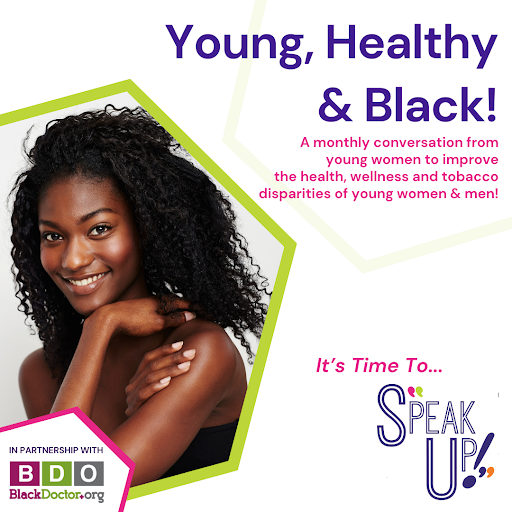
Hey, Lovelies, I hope you all are having a true #HotGirlSummer (I do mean HOT cause this heat isn't normal) and living it up despite all of the craziness surrounding us. Chile, everything is high except my wages, we're about to be battling COVID-19 and Monkeypox, and the trailer for Wakanda Forever has me in my feelings. I was scrolling on Twitter, avoiding my responsibilities, and came across a thread of women talking about their experiences with PMDD, and I knew we needed to talk about it. We also have a co-author for this article to discuss her experience with PMDD. This isn't your regular period talk that some of us may or may not have gotten, so let's get into it!
Did you Know?
- 90% of women and menstruating people experience common PMS symptoms of bloating, cramping, irritability, and fatigue.
- 3-8% of women and menstruating people have PMDD.
- About 30 percent of people with PMDD attempt suicide at one point in their lives.
Not Your Regular PMS
I know that I can't be the only one who loathes that time of the month, simply because I know that PMS is going to get the best of me and have me craving sugar, vacillating between crying and cursing people out, and dealing with cramps that have me down for the count. I swear the movie "Turning Red" is the story of my life every month!
However, some women and menstruating people experience this on a magnified level with Premenstrual Dysphoric Disorder (PMDD). PMDD is a more severe form of PMS with extreme irritability, anxiety, or depression (think "Turning Red" meets "Diary of a Mad Black Woman", closet scene).
While PMS and PMDD have some of the same physical and emotional symptoms, PMDD causes severe mood shifts that can interrupt a person's ability to function in daily life, such as work, school, relationships, and most importantly themselves.
Physical and emotional symptoms typically occur one to two weeks before menstruation when estrogen and progesterone decrease and subsides when menstruation is over and hormone levels rise again.
The cause of PMDD is unknown, but it is thought to be caused by the body's sensitivity to hormonal changes that happen with each menstrual cycle. The hormonal changes can cause a serotonin deficiency, a neurotransmitter that mediates happiness, satisfaction, and optimism (see Love, you're not crazy).
To be diagnosed with PMDD, keep track of your symptoms for a few months and if you have five or more of the symptoms below during most menstrual cycles, report it to your doctor or another medical professional. So, if it's about to be that time of the month before you key his Hellcat, cut your hair off, or quit your job (even though Beyoncé told us to), please check to see if you have PMDD.
RELATED: Is It PMS Or PMDD?
Symptoms
- Depressed mood, negative thoughts or feelings toward self, hopelessness
- Anxiety, nervousness, tension
- Significant mood changes
- Anger, irritability, increased conflict with others
- Difficulty concentrating
- Changes in appetite
- Extreme fatigue, low energy
- Feeling overwhelmed or out of control
- Bloating, breast tenderness, headaches, muscle pain
Some Ways to Manage PMDD
- Selective serotonin reuptake inhibitors (SSRIs)
- Oral contraceptives (birth control pills)
- Therapy
- Lower intake of salt, caffeine, and sugar
- Increase fruits, vegetables, protein, and complex carbs in your diet
- Exercise
- Getting adequate sleep
Dynecia Clark's Personal Experience with PMDD
I was extremely excited about the topic when I initially agreed to contribute to this article. Premenstrual Dysphoric Disorder (PMDD) is not a sexy topic in blogs and articles these days!
Though this is from a life experience point of view, the nerd in me could not help but research the disorder further. I was amazed to see how far research symptoms and treatment options have gotten since my pubescent years. It would be a flaw of me not to mention that the updated analysis of the symptoms resulted in many hours of reflection.
I was diagnosed with PMDD around the age of 10. I had been experiencing consistent mood swings, migraines, and back pains and was immediately prescribed Ibuprofen. Little did I know that those symptoms would define my teen and young adult years.
Dealing with this disorder for over ten years has been absolutely exhausting. Constantly not being understood in doctor's offices, educational and work settings, and among your peers is no easy feat, which unfortunately is the case of any kind of "invisible" health condition. But with menstrual issues constantly being minimized or written off as "regular PMS'ing," expressing how unbearable the symptoms are is often seen as dramatic. However, it is not dramatic.
Having cramps that feel paralyzing, uncontrollable mood swings, and nausea constantly interrupting your way of life becomes embarrassing. The increased anxiety and heavy depressive moods make you feel like your life is full of suffering. Every month I felt like I had no control of my body and was honestly starting to loathe that part of being a woman (as my Mama would say).
Fortunately, young girls, women, and menstruating people won't have to suffer like I did and sometimes still do. There is more information about PMDD and treatment than just a strong prescription of Ibuprofen. If you feel that you or someone you know may have PMDD, read up on it and talk to your doctor or another medical professional about it. We don't have to chalk this up as regular PMS or suffer in silence to prove our strength or womanhood.
Closing
I know this topic is a bit personal, but this issue has been brushed under the rug, and people can't continue to suffer. First, understand that you are not crazy, this is not normal PMS, and every woman and menstruating person does not deal with this. It can be hard to verbalize what is going on to other people who have never experienced it, so try to explain using metaphors and end with an actionable request.
Grace and self-preservation will be crucial when dealing with PMDD, so take that sick day, cancel plans, and eat those snacks. Do whatever you need to do until you're back to your usual self. And if you need help, YELL! Let your support system know what you need, how you need it, and when you need it. We're not suffering in silence anymore! Please be sure to consult with a medical professional, preferably an Obstetrician/Gynecologist (OB-GYN) or Women's Health Nurse Practitioner or Physician Assistant, for more information, a diagnosis, or treatment.
Be on the lookout for more articles from "SPEAK UP!" interns. If you are or know of any Black college-aged and enrolled women interested in advocating against tobacco cessation on HBCU campuses, please visit Save a Girl, Save a World (SAGSAW) for more information.
Aravia Patterson, MPH, is a 26-year-old intern with SAGSAW/SPEAK Up! She is currently a Ph.D. Student at the University of Louisville studying Health Promotion and Behavioral Sciences.
Dynecia Clark is a 23-year-old HBCU Recruitment Intern/Project Associate with SPEAK Up! She is also a Clark Atlanta University Alum
.
Resources








